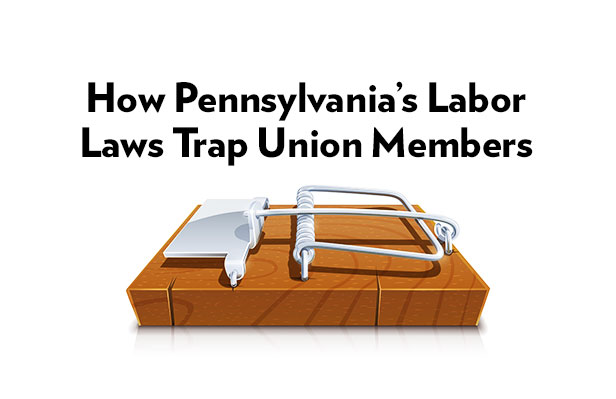Media

Three Ways Government Unions Marginalize Members
Unionization doesn’t guarantee representation. Penn State graduate assistants may soon learn this lesson.
Shortly after the Pennsylvania Labor Relations Board ruled the graduate assistants can unionize, the Pittsburgh Federation of Teachers (PFT) authorized a strike. As part of ongoing negotiations to replace an expired contract, a strike authorization allows PFT to pull teachers and students from the classroom until their demands are met. While such a strong-arm tactic seems enticing, it showcases a the lack of transparency and accountability to union members.
An undemocratic process
Elections form the crux of our democratic process, helping to ensure better representation. Yet, unions exempt themselves from this accountability measure. Once certified, government unions aren’t required to stand for reelection.
As a result, less than 1 percent of Pennsylvania teachers have ever voted for their union. Pittsburgh teachers haven’t voted for their union since 1973.
Instead of continuously working to attract and retain members through better benefits, union leaders can simply maintain antiquated, status quo practices. GAs should consider whether an organization without routine elections can appropriately respect their voting rights.
Diminished individual rights
Nearly 150 PFT teachers voted against a strike, yet will be forced to comply if union leaders call a strike. Should unionization succeed, the GAs who oppose unionization will lose also their individual voices. They will be forced to pay the union – or lose their jobs.
Individualized contracts, flexible working conditions, merit pay, these are just a few of the benefits every worker deserves, and few union members ever enjoy. Instead, the careers of even willing union members will be dictated by generic, one-size-fits-all contracts.
And let’s not forget, union dues fund more than collective bargaining, including highly political spending. Not only do union members have less say over their working conditions, they are forced to fund political speech with which they may disagree.
Secret negotiations
The contract negotiations that may soon spark a city-disrupting strike in Pittsburgh are conducted far away from public view. Not only are teachers not part of negotiations for their own contracts, but taxpayers are also kept completely in the dark – until they’re handed the bill.
Pittsburgh mayor Bill Peduto has unsuccessfully attempted to involved himself in negotiations, stating:
“I’m willing to still negotiate and bring people to the table…But I’m only willing to do it when I don’t have a door closed in my face.”
Taxpayers and teachers/union members permanently have the door shut in their faces. They deserve transparency through the negotiation process, before such drastic, far-reaching measures as strikes are proposed.
Is this the type of representation Penn State graduate students want? For nearly $200 in annual fees, they should demand more recognition of their individual rights.